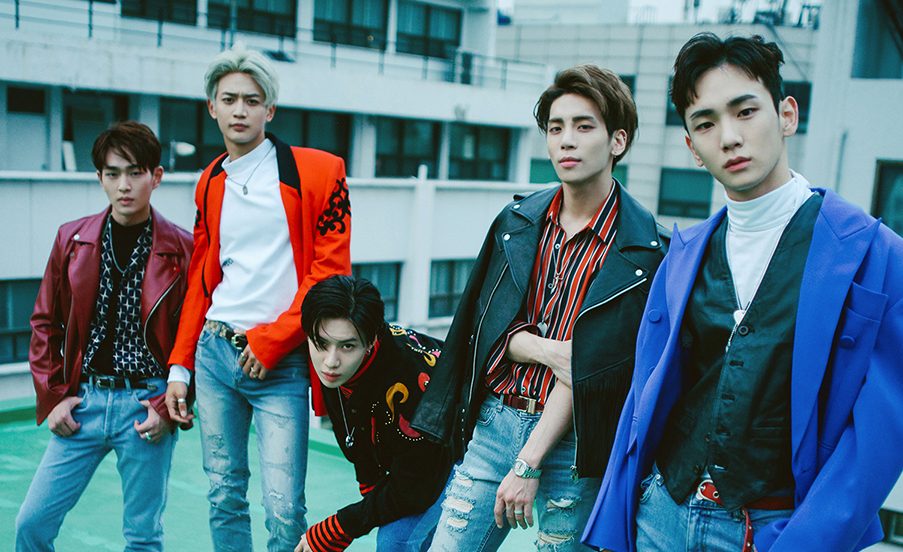Don’t Be Ashamed to Mourn a Celebrity
When K-pop star Jonghyun died last month, I found myself broken for weeks. Was I insane for feeling such immense sorrow over a super star?
Artists are like our inner voices, speaking to us when we need it most, often reassuring us that we are not alone. They’re also like our best friends, opening up their heart and offering us the peace in knowing there is someone who understands what we’ve been through. Even if we never end up meeting them, we are grateful for the shield they become for us through their artistry. The breaking of this shield by their passing can be devastating.
When South Korean group SHINee’s lead vocalist Kim Jonghyun died last month, legions of fans were left heartbroken and an entire industry was plunged into bereavement. The singer-songwriter, known mononymously as Jonghyun, was one of the world’s biggest K-pop stars and his sudden suicide at the age of 27 sparked numerous discussions about the price of fame, the competitive K-pop industry and the severity of depression that leads celebrities into taking their own lives.
Jonghyun at his final concert in December:
Accompanying the hundreds of tributes that populated the Internet since the death was a wide range of advice on what to do if you ever feel suicidal or depressed. Almost every article/obituary carried cautious little blurbs that went something like: ‘If you or a loved one is feeling depressed, please contact <insert suicide helpline number>’.
While this ubiquitous gesture of help was commendable, it wasn’t exactly what I was looking for. As a longtime lover of his music, I was being offered therapy when I all I wanted was a shoulder to cry on.
SHINee had served as a gateway to the world of K-pop for most fans around my age. Jonghyun had remained a steady presence in this journey: as part of the group, a solo artist and a radio show host. The 10 years he spent in the industry granted him veteran status and super-stardom. Needless to say, his was the most high-profile K-pop star death of this generation. His loss was therefore severely difficult to process.

[L-R] Onew, Minho, Taemin, Jonghyun and Key of SHINee. Photo: Courtesy of SM Entertainment
I remember bursting into tears–in office no less–as soon as I read the news and I also remember the immediate feeling of shame that followed for doing so. As my colleagues did their best to fight awkwardness and console me, I wondered why I was ashamed in the first place and it made me angry. I proceeded to write Jonghyun’s obituary in a daze and the wave of grief that hit me later on that day was suffocating.
Most people will label this behavior melodramatic. My weeks-long mood drop post Jonghyun’s death was perceived as this. People wondered why I wasn’t over it–he wasn’t a friend of mine, or a relative or my significant other. Fellow fans and I heard words like, “Oh so you’re still hung up over that Korean boy?” or “Get over it, it’s been days!”
Not knowing Jonghyun personally seemed to have automatically invalidated our grief. To me, this didn’t make sense at all. Because regardless of whether or not we knew him in person, this celebrity meant something to us. Our memories of him and his work were tied to landmark moments in our lives, to our relationships with other people and our growth as human beings.

Jonghyun performing at the SMTown Live World Tour IV II in Taiwan in 2015. Photo: Sparking/Wikimedia Commons
It’s a gut-wrenching matter to come to the realization that you won’t hear any new music from your favorite artists or see any new videos of them. You also feel useless because you aren’t able to help. You are just one face in a crowd of millions and it hurts that while they were able to be there for you when you needed it most, there was nothing you could do for them.
People put a lot of weight in the argument that mourners must move on quickly to avoid falling into depression. While that is somewhat true, suppressing grief is not the answer. There are always feelings of guilt, grief, fear and anger that surround a death (no matter how close or far from home) and they need to be addressed if you’re going to heal.
On Christmas Eve, I attended a memorial for Jonghyun in Mumbai, organized by a long-standing fan club in the city. We played SHINee and Jonghyun’s music, talked about how funny and kind he was, and what he meant to all of us. “There’s no one other than you guys who will understand,” one fan admitted. The memorial made me realize how lucky I was to have friends who were mourning Jonghyun’s death just like me.

A fan speaks about Jonghyun at a memorial held for him in Mumbai.
Later on I met up with my friends and we cried, laughed and drank in Jonghyun’s honor. We also discussed what his death meant for the entire K-pop industry and SHINee’s future as a band. When I was with these friends, there was no pressure to “hurry up and get over it” and the catharsis that comes with knowing that was precious.
So take your own time to grieve. Don’t feel ashamed of it, don’t scramble to hide it–cry, scream, punch something and get it out. If friends or family can’t help, turn to your fan community. Go online, find groups on Facebook and Twitter, and write about how you feel. Find comfort in the unconditional love a fandom can envelope you in. Because your grief is valid.
Watch Jonghyun perform his track “Lonely” at his final concert below:






